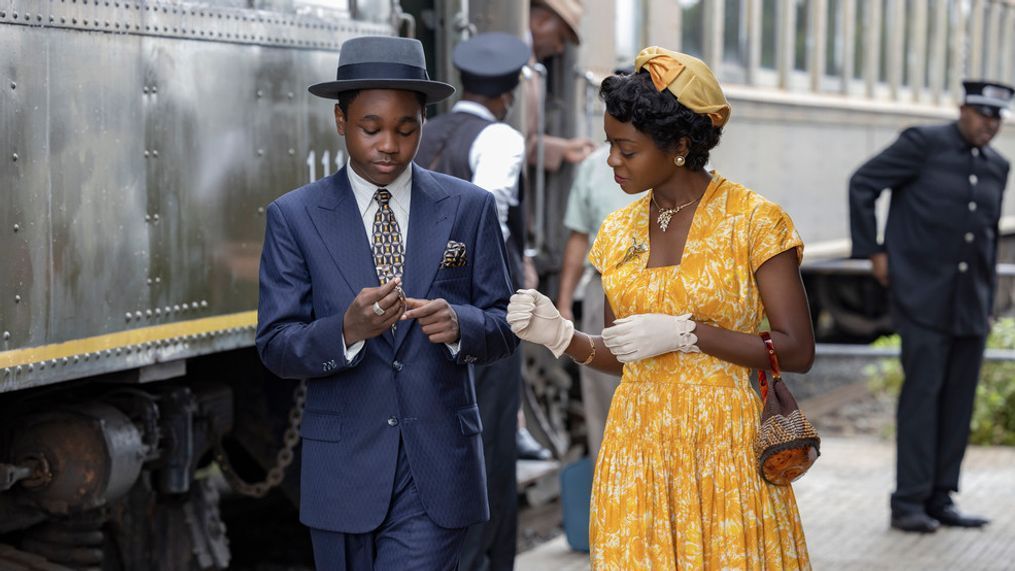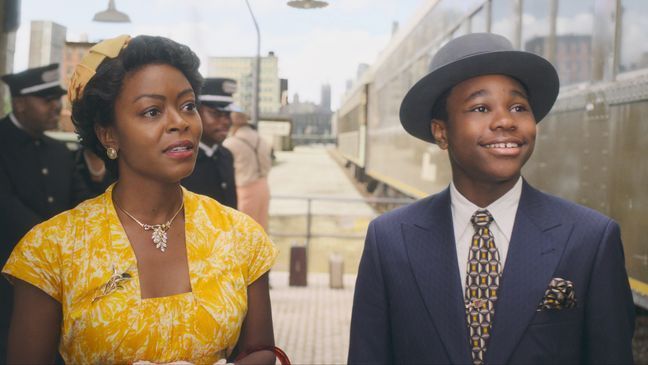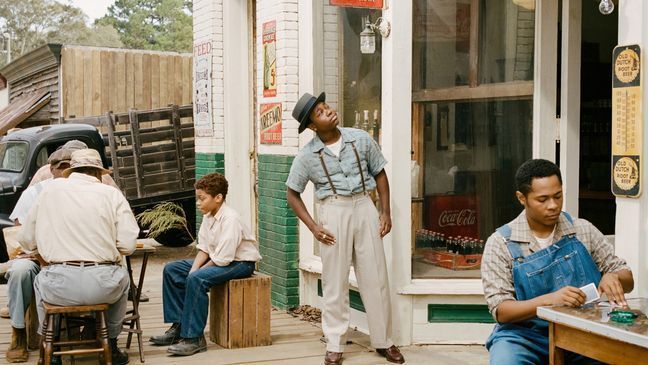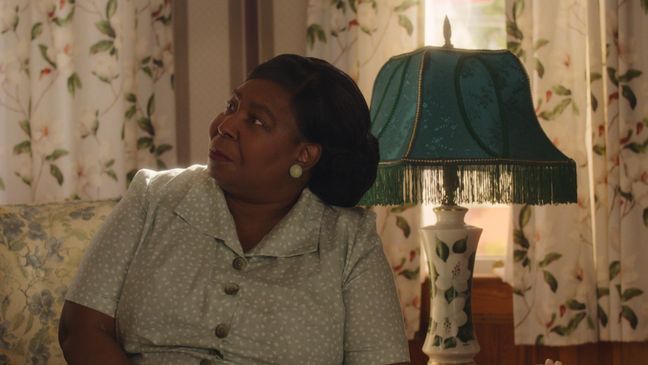Review: 'Till' sidelines hate in favor of a tribute to a mother's enduring love
SALT LAKE CITY (KUTV) — Till
4 out of 5 Stars
Director: Chinonye Chukwu
Writers: Michael Reilly, Keith Beauchamp, Chinonye Chukwu
Starring: Danielle Deadwyler, Jalyn Hal, Haley Bennett
Genre: Drama
Rated: PG-13 for thematic content involving racism, strong disturbing images and racial slurs.
SALT LAKE CITY (KUTV) – Studio Synopsis: Till tells the heartbreaking true story of the historic lynching of 14-year-old Emmett Till — for whistling at a white woman in Money, Mississippi in 1955 — through the eyes of his mother Mamie Till-Mobley.
Review: There is no happy version of the Emmett Till story. So, when I tell you that director Chinonye Chukwu’s film could have been far more gruesome, don’t for a moment think that “Till” has been watered down to the point of being completely digestible. It’s not. It never should be.
Chukwu and her co-writers Michael Reilly and Keith Beauchamp made the decision to not linger too long on the violence and turn their attention to Mamie Till-Mobley and her decision to have an open casket at her son’s funeral.
They’ve also stuck closely to the facts. We really don’t know what Emmett did to offend Carolyn Bryant. We also don’t know what role Bryant played in the kidnapping, torture, and killing of Emmett. Did she try to stop or encourage her husband? In the film, Emmett tells Bryant she is as beautiful as a Hollywood star and later whistles at her as she walks away from him. This isn’t a case of creative license as much as it simply the filmmakers taking aspects from different witness accounts. As for Bryant’s role in the kidnapping, Bennett plays her as a cold woman who the audience will feel little sympathy for.
Sympathy is mostly reserved for Mamie. Danielle Deadwyler’s performance is incredibly dynamic as she plays gives character a balance of vulnerability and strength. She’s never painted as a larger-than-life presence. She also doesn’t wilt when faced with the bloated, disfigured corpse of her son. She's not comfortable with the role she is asked to play. What she wants is set aside for something greater.
By making Mamie the focus of the film’s second and third acts, Chukwu effectively turns a story that could have been dominated by hate into a narrative of love. This, and the choice to only give a glimpse or two of Emmett’s corpse allows the audience to remember him only as the boy we are introduced to in the first act. It allows him to keep a sense of his humanity that may have been lost if the camera made us look at Emmett in the way Mamie was forced to.
But is that a good thing? Should we be allowed to remember Emmett in a way that his mother is not? Would "Till" be a better film if it was more difficult to watch? Maybe. But who would see it?
The film that Chukwu has made is more accessible than I would have expected. It still delivers its potent message. So, I would hope that audiences that would traditionally be excluded from a R-rated feature will see it. We cannot improve upon our history if we refuse to acknowledge it. Sweeping tragedy under the carpet doesn't make the tragedy go away.




